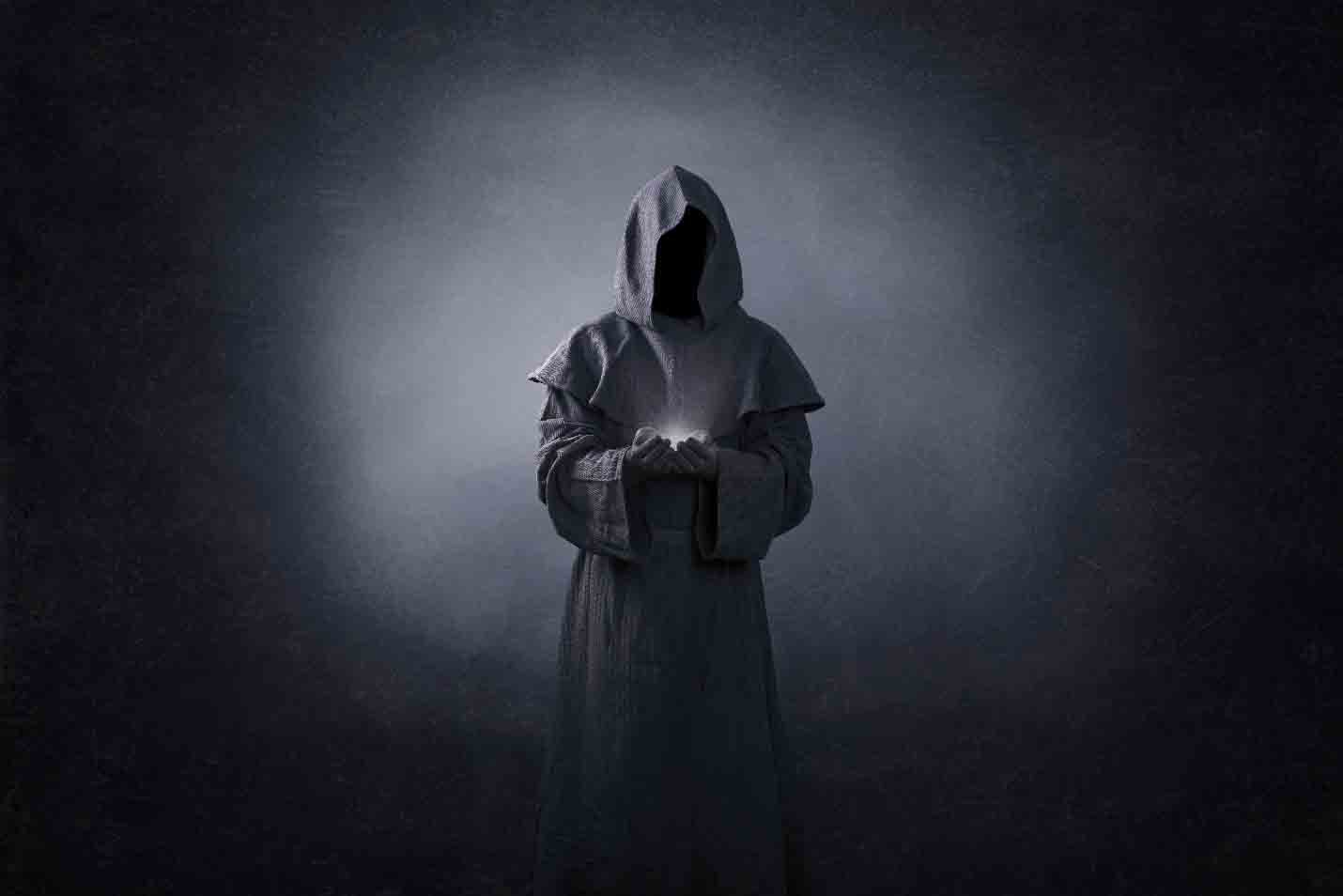Ever wondered about the concept of the Antichrist? It's a topic that has sparked curiosity, fear, and debate for centuries. The term "Antichrist" itself has been thrown around in religious texts, movies, and even conspiracy theories. But what does it really mean? Let's dive into the depths of this fascinating subject and uncover the truth behind the myth.
From ancient prophecies to modern interpretations, the idea of the Antichrist continues to intrigue people worldwide. It's not just a religious concept; it's a cultural phenomenon that has influenced literature, art, and even politics. As we explore this topic, we'll break it down into bite-sized pieces, making it easier for you to grasp the complexities surrounding the Antichrist.
So, whether you're a religious scholar, a history buff, or just someone curious about the unknown, this article is for you. We'll cover everything from the origins of the term to its modern-day implications. Let's get started!
What Exactly Is the Antichrist?
The term "Antichrist" might sound ominous, but its origins are deeply rooted in religious texts, particularly in the Bible. In simple terms, the Antichrist is often described as a figure who opposes Christ or poses as a false messiah. But there's more to it than just that.
Religious scholars have debated the meaning of the Antichrist for centuries. Some view it as a literal person who will appear at the end of times, while others see it as a metaphor for forces that go against the teachings of Christ. Whatever your perspective, one thing is clear: the Antichrist is a powerful symbol that continues to captivate the imagination.
Origins of the Antichrist Concept
The concept of the Antichrist can be traced back to the New Testament, specifically in the letters of John. The word "Antichrist" appears four times in these letters, warning believers about false prophets and deceivers. But the idea didn't stop there. Over time, it evolved and took on new meanings in various religious traditions.
One interesting fact is that the Antichrist concept wasn't fully fleshed out until the Middle Ages. During this period, religious leaders and thinkers expanded on the idea, creating elaborate narratives about the Antichrist's appearance and role in the end times. These stories often reflected the fears and anxieties of the time, making the Antichrist a symbol of chaos and disorder.
Historical Perspectives on the Antichrist
Throughout history, different cultures and religions have interpreted the Antichrist in their own ways. From ancient Jewish prophecies to Islamic eschatology, the concept has taken on various forms. Let's take a closer look at some of these perspectives.
- Jewish Perspective: In Jewish tradition, the Antichrist is often associated with the figure of the "False Messiah," who will lead people astray before the arrival of the true Messiah.
- Christian Perspective: For Christians, the Antichrist represents a direct challenge to the teachings of Jesus Christ. Many believe that the Antichrist will deceive people with false promises and miracles.
- Islamic Perspective: In Islam, the Antichrist is known as the "Dajjal," a figure who will appear at the end of times to test the faith of believers.
These diverse interpretations highlight the universal appeal of the Antichrist concept. It's a theme that transcends religious boundaries, resonating with people from all walks of life.
Antichrist in Art and Literature
Over the centuries, the Antichrist has been a popular subject in art and literature. From Dante's "Divine Comedy" to John Milton's "Paradise Lost," writers and artists have explored the darker side of human nature through the lens of the Antichrist.
In modern times, the Antichrist has made appearances in movies, TV shows, and even video games. These portrayals often reflect contemporary fears and anxieties, making the Antichrist a timeless figure in popular culture. For example, movies like "The Omen" and "Legion" have brought the Antichrist to the big screen, captivating audiences with their thrilling storylines.
Common Misconceptions About the Antichrist
There are plenty of misconceptions surrounding the Antichrist, and it's important to separate fact from fiction. Here are a few common myths debunked:
- Myth #1: The Antichrist is a single person. In reality, the term can refer to any individual or group that opposes the teachings of Christ.
- Myth #2: The Antichrist will be easily recognizable. On the contrary, many believe that the Antichrist will be charismatic and persuasive, making it difficult to identify them.
- Myth #3: The Antichrist is a modern invention. As we've seen, the concept has been around for centuries and has evolved over time.
By understanding these misconceptions, we can gain a deeper appreciation for the complexity of the Antichrist concept.
Signs of the Antichrist's Arrival
If you're curious about the signs of the Antichrist's arrival, you're not alone. Many religious texts and traditions offer clues about what to expect. Some of the most commonly cited signs include:
- A global leader who gains immense power and influence.
- The rise of false prophets and deceivers.
- A period of great tribulation and unrest.
While these signs may seem alarming, it's important to approach them with a critical mindset. Not everything we see in the news or hear in conversations is necessarily a sign of the Antichrist's arrival.
Antichrist in Modern-Day Politics
It's no secret that the Antichrist concept has made its way into modern-day politics. Throughout history, political leaders have been accused of being the Antichrist, often due to their controversial policies or actions. But is there any truth to these claims?
In recent years, figures like Adolf Hitler, Joseph Stalin, and even modern politicians have been labeled as potential Antichrists. While these accusations may be sensational, they reflect the deep-seated fears and anxieties that people have about those in power.
The Role of Media in Shaping Perceptions
The media plays a significant role in shaping public perceptions of the Antichrist. Through news reports, documentaries, and even social media, the concept continues to be discussed and debated. However, it's important to approach these discussions with a critical eye and rely on credible sources for information.
For example, websites like the Vatican's official site or reputable religious organizations can provide valuable insights into the Antichrist concept. These sources offer balanced perspectives that help separate fact from fiction.
Antichrist and Apocalyptic Beliefs
For many, the Antichrist is closely tied to apocalyptic beliefs about the end of the world. These beliefs vary widely across different cultures and religions, but they often share common themes. Let's explore some of these themes and their implications.
One of the most intriguing aspects of apocalyptic beliefs is their ability to unite people in times of crisis. By providing a sense of purpose and meaning, these beliefs can offer comfort and hope to those who feel lost or uncertain. However, they can also lead to fear and division if not approached with care and understanding.
How to Prepare for the End Times
If you're concerned about the Antichrist and the end times, there are steps you can take to prepare. While no one knows for certain what the future holds, focusing on spiritual growth and community building can make a big difference. Here are a few tips:
- Stay informed by reading reliable sources and staying up-to-date on current events.
- Cultivate a strong sense of faith and purpose in your daily life.
- Build meaningful connections with others in your community.
By taking these steps, you can face the future with confidence and resilience.
Antichrist in Popular Culture
From books to movies to video games, the Antichrist has left an indelible mark on popular culture. These portrayals often reflect the fears and anxieties of the time, making the Antichrist a timeless figure in entertainment. Let's take a look at some of the most memorable examples:
In movies like "The Omen," the Antichrist is depicted as a child who grows up to become a powerful and malevolent figure. In TV shows like "Supernatural," the Antichrist is a recurring theme that adds depth and complexity to the storyline. Even in video games like "Left Behind: Eternal Forces," players can experience the thrill of battling against the forces of the Antichrist.
Why Does the Antichrist Fascinate Us?
The Antichrist fascinates us because it taps into our deepest fears and desires. It represents the ultimate test of faith and morality, challenging us to confront the darker aspects of human nature. Whether you view the Antichrist as a literal figure or a metaphor for evil, its presence in popular culture continues to captivate audiences worldwide.
Scientific Perspectives on the Antichrist
While the Antichrist is primarily a religious concept, some scientists and scholars have explored its implications from a secular perspective. These perspectives often focus on the psychological and sociological aspects of the Antichrist phenomenon. For example:
- Psychological Perspective: The Antichrist can be seen as a symbol of the human tendency to project our fears and anxieties onto others.
- Sociological Perspective: The concept of the Antichrist reflects broader societal concerns about power, authority, and control.
By examining the Antichrist from these perspectives, we can gain a deeper understanding of its impact on human behavior and society as a whole.
Does Science Have an Answer?
While science may not have a definitive answer to the Antichrist question, it can provide valuable insights into the psychological and social factors that contribute to its appeal. For example, studies on group dynamics and leadership can help explain why people are drawn to charismatic figures who promise salvation or deliverance.
Ultimately, the Antichrist remains a mystery that continues to inspire debate and discussion. Whether viewed through a religious or secular lens, its influence on human culture is undeniable.
Conclusion: Embracing the Mystery
As we've explored the concept of the Antichrist, it's clear that this topic is both fascinating and complex. From its origins in religious texts to its impact on modern culture, the Antichrist continues to captivate the imagination. But what can we take away from this exploration?
First and foremost, it's important to approach the Antichrist concept with an open mind and a critical perspective. By staying informed and relying on credible sources, we can gain a deeper understanding of its significance. Additionally, focusing on spiritual growth and community building can help us navigate the uncertainties of the future.
So, the next time you hear about the Antichrist in the news or in conversation, remember the rich history and diverse interpretations that surround this enigmatic figure. And don't forget to share this article with your friends and family to continue the discussion!
Table of Contents:
- What Exactly Is the Antichrist?
- Origins of the Antichrist Concept
- Historical Perspectives on the Antichrist
- Antichrist in Art and Literature
- Common Misconceptions About the Antichrist
- Signs of the Antichrist's Arrival
- Antichrist in Modern-Day Politics
- The Role of Media in Shaping Perceptions
- Antichrist and Apocalyptic Beliefs
- How to Prepare for the End Times
- Antichrist in Popular Culture
- Why Does the Antichrist Fascinate Us?


